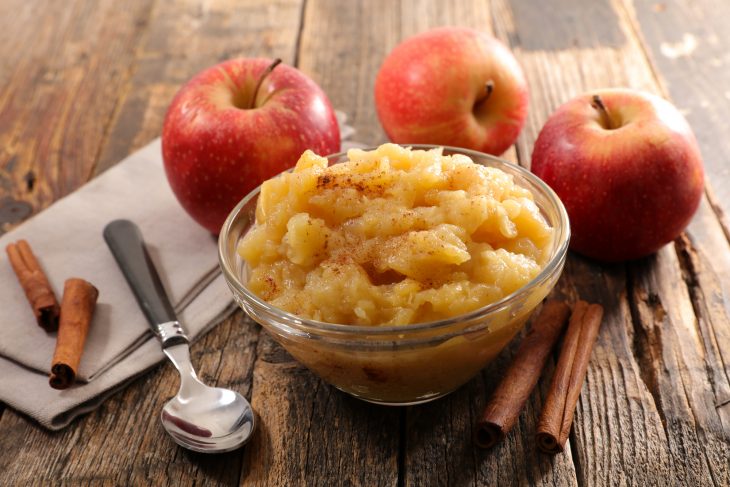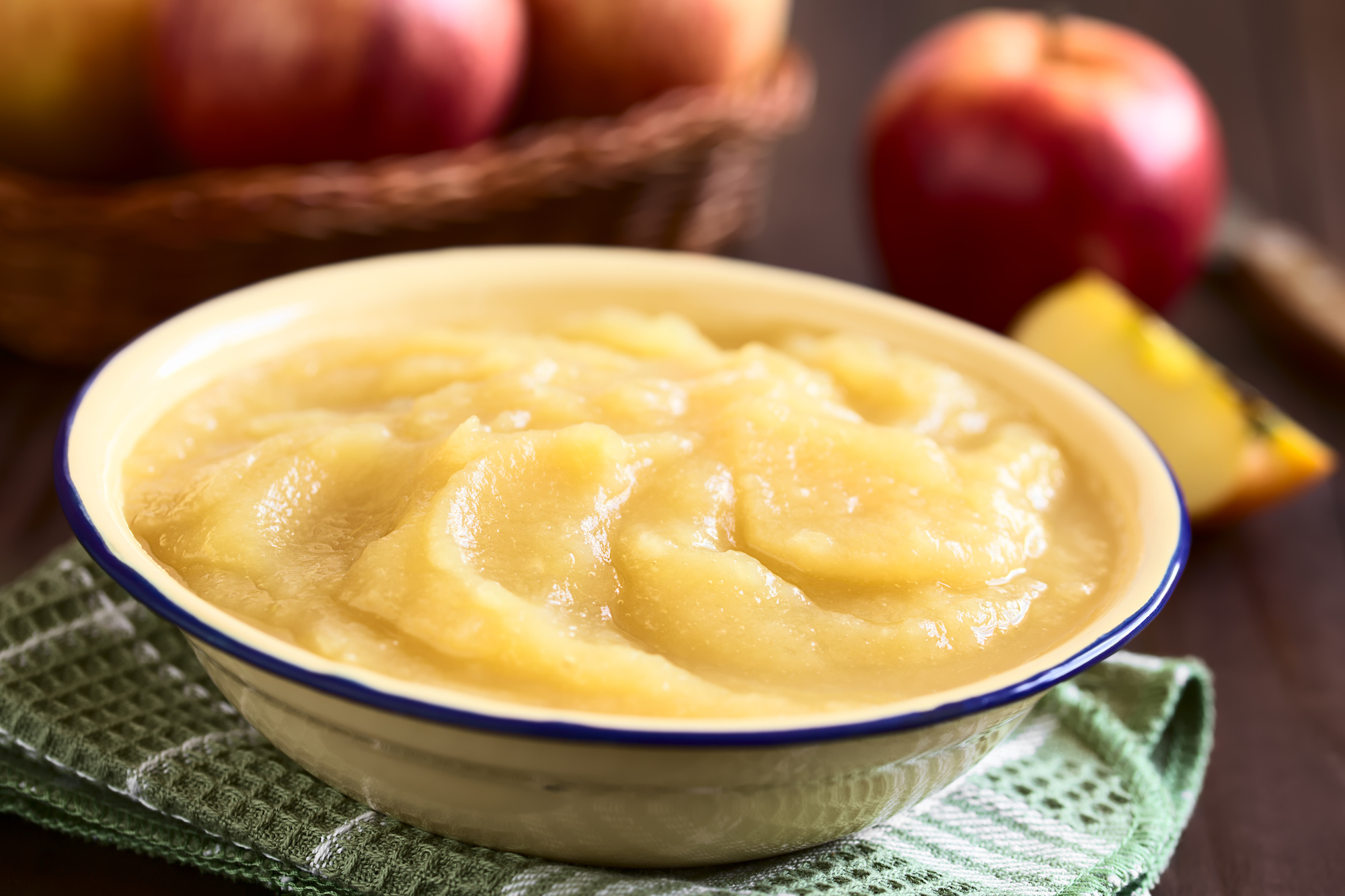
Applesauce, a timeless favorite among both children and adults, brings the natural sweetness of apples to our taste buds. But did you know that this delightful snack is not only delicious but also packs a nutritional punch? In this comprehensive article, we will dive into the world of applesauce and uncover its impressive array of nutrition facts. So sit back, relax, and prepare to embark on a journey through the delectable and nutritious world of applesauce.
The Origin of Applesauce: A Taste of Tradition
Applesauce traces its roots back to ancient times, with evidence of its consumption dating back to medieval Europe. It gained popularity as a versatile ingredient and a delicious accompaniment to various dishes. Over the years, this classic fruit preparation method has evolved, with different cultures and regions adding their own unique twists to the recipe. Today, applesauce is widely enjoyed around the globe and is available in various forms, including chunky, smooth, and flavored variations.
Caloric Content
Applesauce is a low-calorie snack, making it an ideal option for those mindful of their caloric intake or aiming to maintain a healthy weight. A typical serving of unsweetened applesauce (approximately 1/2 cup) contains around 50-70 calories, depending on the specific brand or homemade recipe. This moderate calorie count allows you to enjoy the goodness of applesauce without guilt.
Fat Content
Applesauce is naturally low in fat, making it a guilt-free snack option. Additionally, its natural sweetness can help satisfy cravings for sugary treats without the added fat.
Carbohydrate Content
Applesauce is primarily composed of carbohydrates, with natural sugars derived from the apples themselves. In a single serving of unsweetened applesauce, you can expect to find approximately 12-18 grams of carbohydrates.
Essential Vitamins
Applesauce boasts an impressive array of essential vitamins that contribute to overall health and well-being. For instance, applesauce is a good source of vitamin C, an antioxidant that supports the immune system and promotes healthy skin. Applesauce also contains vitamin A, which is beneficial for eye health and helps maintain healthy skin and tissues.

Mineral-Rich
In addition to its vitamin content, applesauce is a significant source of potassium, a vital mineral that supports heart health and helps maintain proper hydration. Potassium plays a crucial role in regulating blood pressure and promoting optimal muscle and nerve function. By incorporating applesauce into your diet, you can enjoy a tasty way to meet your daily potassium needs.
Fiber Content
Applesauce is a great source of dietary fiber, providing approximately 2-4 grams per serving. Fiber is essential for promoting healthy digestion, supporting weight management, and regulating blood sugar levels. It helps promote feelings of fullness and plays a crucial role in maintaining a balanced diet
Cholesterol and Sodium Content
Applesauce is cholesterol-free and naturally low in sodium, making it heart-healthy and suitable for individuals looking to reduce their sodium intake
Antioxidant and Phytonutrient Power
Applesauce is rich in antioxidants and phytonutrients. These are beneficial health compounds that help combat oxidative stress and protect the body against harmful free radicals. The antioxidants found in applesauce, such as flavonoids and polyphenols, have been associated with a reduced risk of chronic diseases, including heart disease and certain types of cancer. These compounds are primarily found in the skins and flesh of apples, making homemade applesauce with the skin included a particularly nutritious choice.
Digestive Health Benefits
Thanks to its fiber content, applesauce supports healthy digestion. Fiber adds bulk to the stool, aiding in regular bowel movements and preventing constipation. Additionally, the pectin fiber found in applesauce has prebiotic properties, promoting the growth of beneficial gut bacteria and contributing to a healthy gut microbiome.

Natural Sugars and Sweetness
Applesauce offers a naturally sweet taste derived from the fruit itself. While it contains natural sugars, they are considerably lower than those found in many other sweet treats. The low sugar content makes applesauce a healthier alternative to processed snacks or desserts. However, it’s important to note that some commercially available applesauce products may contain added sugars, so be sure to check the labels and opt for unsweetened or homemade options whenever possible
Hydration and Electrolyte Balance
Applesauce contains a high water content, helping to keep the body hydrated. Additionally, the presence of potassium in applesauce supports proper electrolyte balance, aiding in muscle function and overall hydration.
Weight Management
Applesauce’s high water and fiber content contribute to a feeling of fullness, making it a satisfying snack that can aid in weight management. By choosing unsweetened varieties, you can enjoy a low-calorie option that satisfies your sweet tooth without derailing your diet.
Conclusion
From its humble origins to its present-day popularity, applesauce continues to captivate our taste buds with its delightful flavors and nutritional benefits. Packed with essential vitamins, minerals, antioxidants, and fiber, this versatile snack is a testament to the natural goodness of apples. Whether enjoyed on its own, incorporated into recipes, or served as a side dish, applesauce is a delectable and nutritious addition to a balanced diet. So go ahead and savor the sweetness of applesauce while reaping its countless health rewards.
Frequently Asked Questions (FAQs)
Is applesauce suitable for individuals with dietary restrictions, such as gluten intolerance or lactose intolerance?
Yes, applesauce is generally suitable for individuals with dietary restrictions such as gluten intolerance or lactose intolerance. It is naturally gluten-free and lactose-free, making it a versatile option for those with specific dietary needs.
Can applesauce be consumed by individuals with diabetes?
Yes, applesauce can be enjoyed by individuals with diabetes. However, it’s important to choose unsweetened applesauce or check the label for added sugars. Natural sugars present in applesauce can affect blood sugar levels, so moderation and portion control are key.
Is homemade applesauce more nutritious than store-bought varieties?
Homemade applesauce can offer some advantages over store-bought options. It allows you to control the ingredients, including the amount of added sugar or other additives. Using fresh, ripe apples and minimal processing ensures maximum retention of nutrients. However, high-quality store-bought applesauce can still provide significant nutritional benefits.
Can applesauce be included in baby food?
Yes, applesauce is often included in baby food recipes as it is easy to digest and provides essential nutrients. However, it’s important to introduce applesauce to babies according to their developmental stage and consult a pediatrician for guidance.
Are there any potential allergens in applesauce?
Applesauce is generally well-tolerated and not a common allergen. However, individuals with known apple allergies should avoid applesauce. It’s always recommended to read labels carefully, especially in flavored or processed varieties that may contain additional ingredients.
Was this page helpful?
Our commitment to delivering trustworthy and engaging content is at the heart of what we do. Each fact on our site is contributed by real users like you, bringing a wealth of diverse insights and information. To ensure the highest standards of accuracy and reliability, our dedicated editors meticulously review each submission. This process guarantees that the facts we share are not only fascinating but also credible. Trust in our commitment to quality and authenticity as you explore and learn with us.
